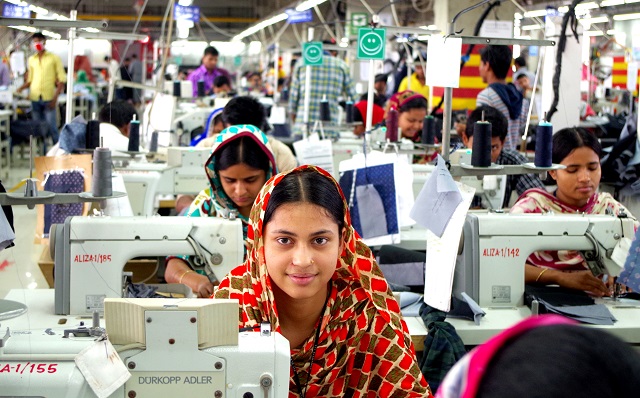
New Oxfam report says they exploit the poor
Kampala, Uganda | RONALD MUSOKE | Oxfam; the global anti-poverty NGO, has once again released a report on trends of wealth accumulation among the rich and poverty deepening among the poor.
While the anger directed at the rich individuals and corporations is the same as in previous reports, this year the frustration of the Oxfam anti-inequality activists appears stronger.
Amitabh Behar, the interim executive director of Oxfam International describes what he calls “runaway corporate and monopoly power” as the “inequality-generating machine.” “Through squeezing workers, dodging tax, privatising the state, and spurring climate breakdown, corporations are funneling endless wealth to their ultra-rich owners,” he says.
But he is also angry at the fact that they are funneling power and undermining democracies and people’s rights. “No corporation or individual should have this much power over our economies and our lives,” says Behar, “To be clear, nobody should have a billion dollars.” Whether you agree with him on that last point or not, there is no disputing the grim statistics in the report.
According to the report, in three years since 2020 (the year of the COVID-19 pandemic), the world’s five richest men have more than doubled their fortunes from US$405 billion to US$869 billion.
These men; Elon Musk, Bernard Arnault, Jeff Bezos, Larry Ellison and Mark Zuckerberg, have been able to make an average of US $14 million per hour over the last three years. According to Oxfam, if current trends persist, the world will get its first dollar trillionaire within the next 10 years.
The Oxfam report “Inequality Inc.” which was published on Jan.15 as business elites gathered for the World Economic Forum in the Swiss resort town of Davos shows that seven out of ten of the world’s biggest corporations have a billionaire as CEO or principal shareholder. These corporations are worth US$10.2 trillion, equivalent to more than the combined GDPs of all countries in Africa and Latin America.
“We’re witnessing the beginnings of a decade of division, with billions of people shouldering the economic shockwaves of the pandemic, inflation and war, while billionaires’ fortunes boom. This inequality is no accident; the billionaire class is ensuring corporations deliver more wealth to them at the expense of everyone else,” said Behar.
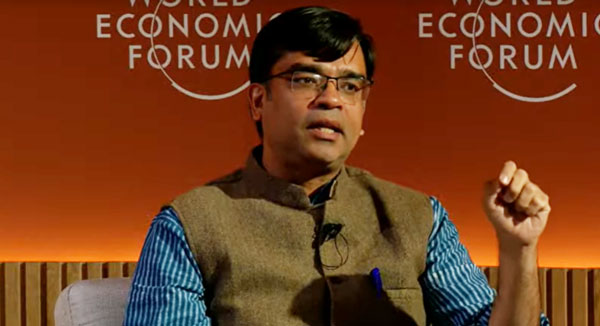
In other words, the system has been designed to ensure that every time a poor person uses X (formerly Twitter), they make Elon Musk rich, if they use Facebook, they make Zuckerberg rich, when they use a computer, Amazon, Google, Cloud computing, or even buy a US$20 Fenty Beauty by Rihanna lip gloss, they make the super-rich richer.
“We are living through an era of monopoly power that enables corporations to control markets, set the terms of exchange, and profit without fear of losing business,” says the report. “Far from being an abstract phenomenon, this impacts us in many ways: influencing the wages we are paid, the foods we eat, and can afford and the medicines we can access. “Far from being accidental, this power has been handed to monopolies by our governments. In sector after sector, increased market concentration can be seen everywhere.”
Decade of pain for billions of people
Oxfam notes in its report that for most people around the world, the start of the 2020 decade has been incredibly hard. Close to five billion people are, for instance, poorer than they were in 2019. Prices are outpacing pay the world over, with hundreds of millions of people seeing their wages buy less each month and their prospects of a better future disappear.
Interestingly, billions of people worldwide are working harder and longer hours, often for poverty wages in precarious and unsafe jobs. The report notes that the wages of nearly 800 million workers have failed to keep up with inflation and they have lost US$1.5 trillion over the last two years, equivalent to nearly a month (25 days) of lost wages for each worker. According to the report, climate breakdown, driven by the super-rich, is dramatically increasing global inequality.
As a result, the report notes, nearly five billion people have been made poorer. For the poorest people, who are more likely to be women, non-white people, and marginalised groups in every society, daily life has become more brutal. According to Oxfam, if current trends persist, poverty will not be eradicated for another 230 years.
Govts wallowing in perpetual debt
Meanwhile, governments, especially those in the so-called Global South, are finding it impossible to stay financially afloat in the face of mounting debt and the escalating costs of importing fuel, food and medicines.
Low-and-lower-middle-income countries are set to pay nearly half a billion dollars a day in interest and debt payments between now and 2029, and they are having to make severe cuts to spending to be able to pay their creditors many of whom are based in the so-called Global North.
The Oxfam report notes that besides the global super rich men, the other bigger winners have been the global corporations. “For huge corporations, just as for super-rich individuals, the last two decades have been better still: the biggest firms experienced an 89% leap in profits in 2021 and 2022,” the report notes.
“Big Tech” firms are dominating markets; with three quarters of global online advertising spending paying Meta, Alphabet and Amazon, and more than 90% of global online search is being done via Google. The agriculture sector has also seen consolidation within Africa while India faces “rising industrial concentration” especially by the top five firms.
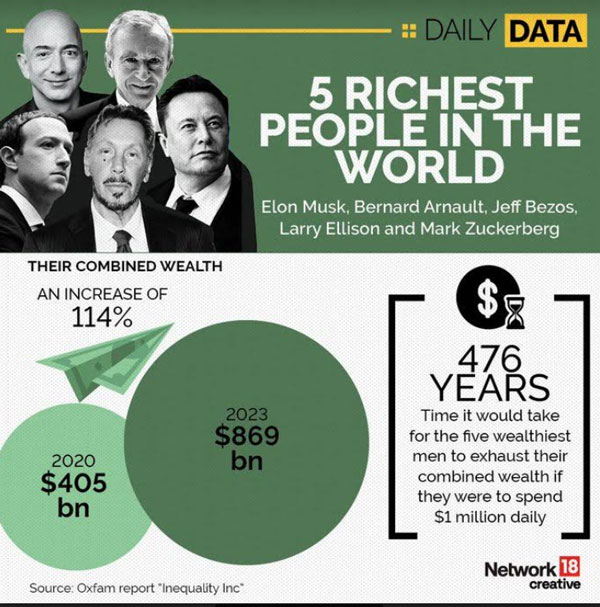
Today, the billionaires are US$3.3 trillion richer than in 2020, and their wealth has grown three times faster than the rate of inflation. According to the report, despite representing just 21% of the global population, rich countries in the Global North own 69% of global wealth and are home to 74% of the world’s billionaire wealth.
The report says ownership of corporate shares tends to overwhelmingly benefit the richest. The top 1% own 59% of all global financial assets. They hold 72% of financial wealth in the Middle East, 58% in Asia and 56% in Europe.
Mirroring the fortunes of the super-rich, large firms are set to smash their annual profit records in 2023. The Oxfam report says 148 of the world’s biggest corporations together raked in US$1.8 trillion in total net profits in the year to June 2023, a 52% jump compared to average net profits in 2018-2021.
Their windfall profits surged to nearly US$700 billion. The report finds that for every US$100 of profit made by 96 major corporations between July 2022 and June 2023, US$82 was paid out to rich shareholders. Ordinary workers came off worse.
Monopolies are crushing workers
New Oxfam analysis of World Benchmarking Alliance data on more than 1,600 of the largest corporations worldwide shows that only 0.4% of them are publicly committed to paying workers a living wage and support a living wage in their value chains. This partly explains, the report notes, why it would take 1,200 years for a woman working in the health and social sector to earn what the average CEO in the biggest 100 Fortune companies earns in a year.
According to the report, new data shows that 2023 is set to shatter all records as the most profitable yet. However, 82% of these profits will benefit shareholders, who are overwhelmingly among the richest people in every society at the expense of workers and ordinary people.
Looking at the 50 biggest public corporations in the world, billionaires are either the principal shareholder or the CEO of 34% of these corporates, with a total market capitalization of US$ 13.3 trillion. Seven out of the ten biggest publicly listed corporates in the world have a billionaire as CEO or as principal shareholder.
This increased corporate power is in turn focused on providing ever-greater returns to them, the shareholders, at the expense of everyone else. For example, over two decades, 60 pharmaceutical companies merged into just 10 giant global “Big Pharma” firms between 1995-2015. Two international companies now own more than 40% of the global seed market.
Monopoly power has also enabled large firms in many concentrated sectors to implicitly coordinate to increase prices to drive up their margins since 2021, with energy, food and pharma sectors seeing huge price hikes. Private equity firms, backed globally by US$ 5.8 trillion of investors’ cash since 2009 have used privileged financial access to act as a monopolizing force across sectors.
“Monopolies harm innovation and crush workers and smaller businesses. The world hasn’t forgotten how pharma monopolies deprived millions of people of COVID-19 vaccines, creating a racist vaccine apartheid, while minting a new club of billionaires,” said Behar.
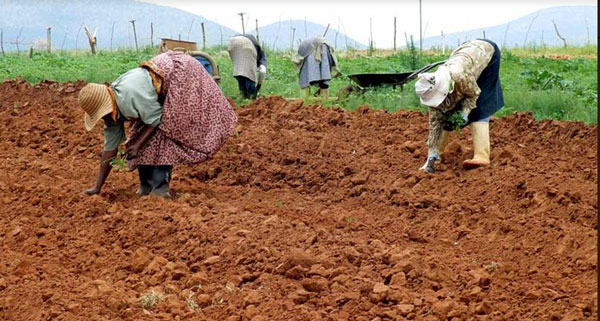
How corporations fuel poverty
The report looks at four ways in which corporate power fuels inequality. It notes that corporations tend to reward the wealthy, not the workers. Corporations drive inequality by using their power to force wages down the throats of workers and direct profits to the ultra- wealthy. In fact, in 2022, the UN’s International Labour Organisation (ILO) warned that the historic decline in real wages could increase inequality and fuel social unrest.
Corporations have particularly used their influence to oppose labour laws and policies that could benefit workers, such as fighting minimum wage increases, reforms that undermine workers’ rights, political restrictions or unionization, and rollbacks to child labour laws.
Oxfam’s report also shows how a “war on taxation” by corporations has seen the effective corporate tax rate fall by roughly a third in recent decades, while corporations have relentlessly privatized the public sector and segregated services like education and water.
Bernie Sanders, the U.S Senator said in a foreword to the report: “Never before in human history have so few owned so much. Never before in human history has there been such income and wealth inequality. Never before in history have we had such huge concentrations of ownership.
“Never before in history have we seen a billionaire class with so much political power. And never before have we seen this unprecedented level of greed, arrogance and irresponsibility on the part of the ruling class.”
Sanders says while millions of people throughout the world live in dire poverty, without clean drinking water, adequate healthcare, decent housing, or education for their children, the world’s billionaires have increased their wealth by over US$ 3 trillion.
Sanders says, “If we stand together in our common humanity there are enormous opportunities in front of us to create a better life for all.”
“We can guarantee healthcare as a human right to every man, woman and child. We can combat climate change, save the planet and create tens of millions of good paying green energy jobs in the process. We can use the advancements in technology and worker productivity to improve our lives. We can eliminate poverty and increase life expectancy.”
Going forward, Oxfam is calling upon governments to revitalize the role of the state, rein-in corporate power, break-up monopolies and democratize patent rules. Governments must also legislate for living wages, capping CEO pay, and new taxes on the super-rich and corporations.
“We have the evidence. We know the history. Public power can rein in runaway corporate power and inequality —shaping the market to be fairer and free from billionaire control,” said Behar.
“Governments must intervene to break-up monopolies, empower workers, tax these massive corporate profits and, crucially, invest in a new era of public goods and services,” noted Behar, “Every corporation has a responsibility to act but very few are. Governments must step up.”
 The Independent Uganda: You get the Truth we Pay the Price
The Independent Uganda: You get the Truth we Pay the Price


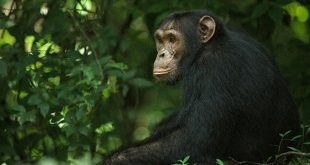
ruthnjoki492@gmail.com